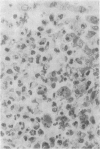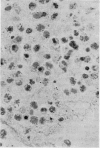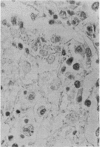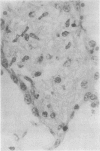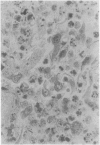Abstract
The pathology and histology are reported of five Scots who died of severe pneumonic illnesses after holidays in Spain, three in 1973 and two in 1977. There is strong evidence in favour of all the deaths having been due to the newly discovered Legionnaires' disease (LD) agent. The agent (or its soluble antigen) has been visualised in sections of lung tissue by fluorescent-antibody tests in all cases, and the agent has been identified by the Dieterle silver staining method in small numbers in all cases. Serological testing was possible in three of the patients, and two had very high antibody titres against the LD agent. Apart from the extensive and severe nature of the pathological process there is no feature to distinguish pulmonary infection by this agent from that due to more commonly known bacteria capable of causing lobar pneumonia. The severity and extensive nature of the process is partly a reflection of neglect in seeking treatment until late in the infection, and partly a reflection, as revealed in retrospect, on the use of the wrong antibiotic combination during treatment. Erythromycin has been recommended by other workers as the drug of choice against the LD agent. Infection by this organism is not confined to the USA or to Spain and is indigenous also in the United Kingdom.
Full text
PDF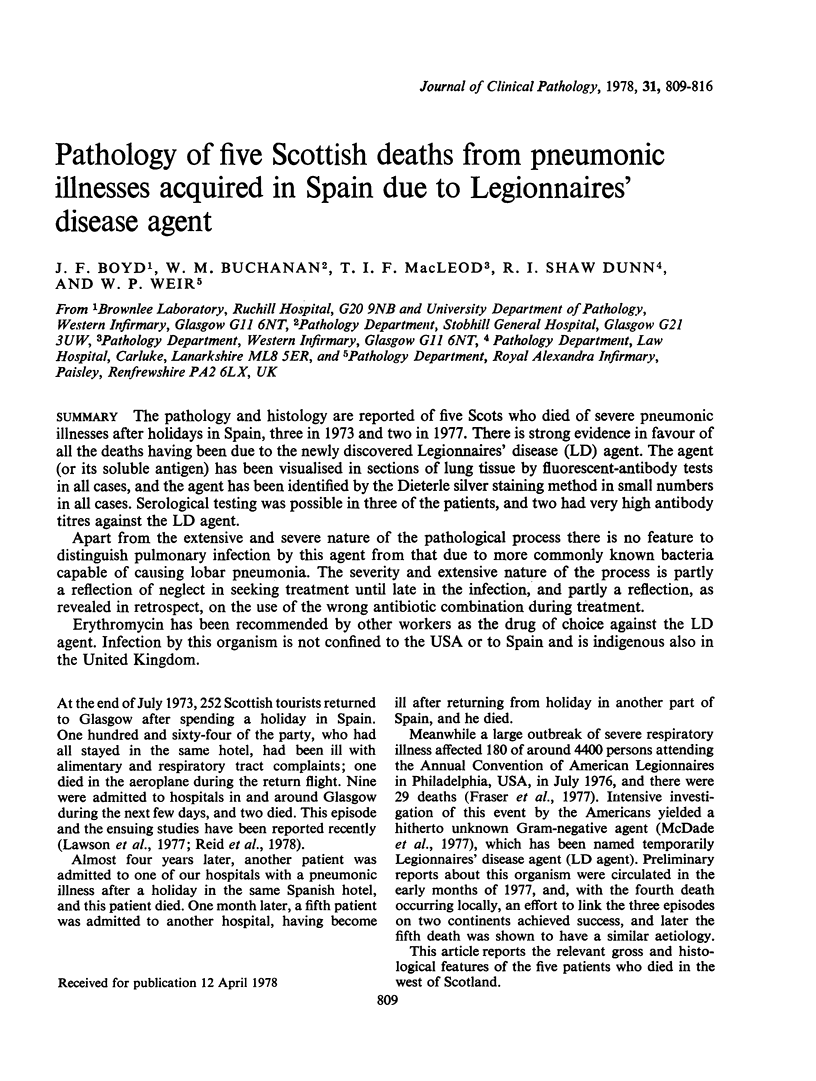
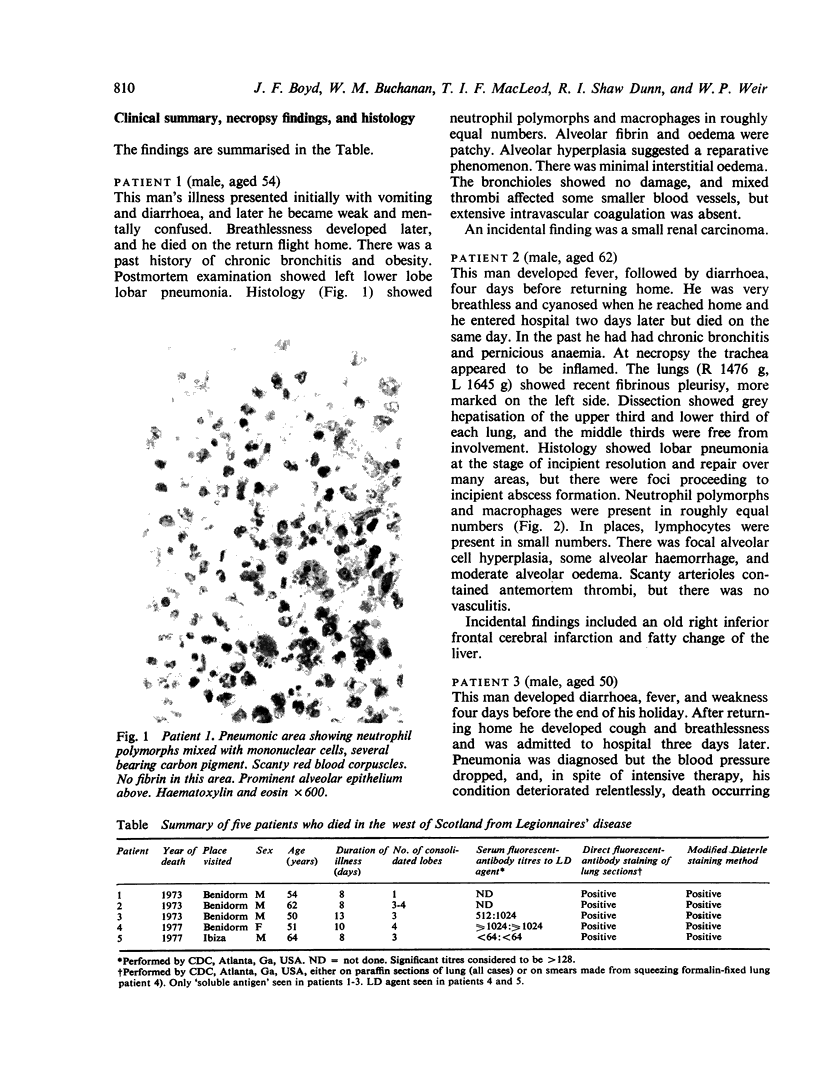
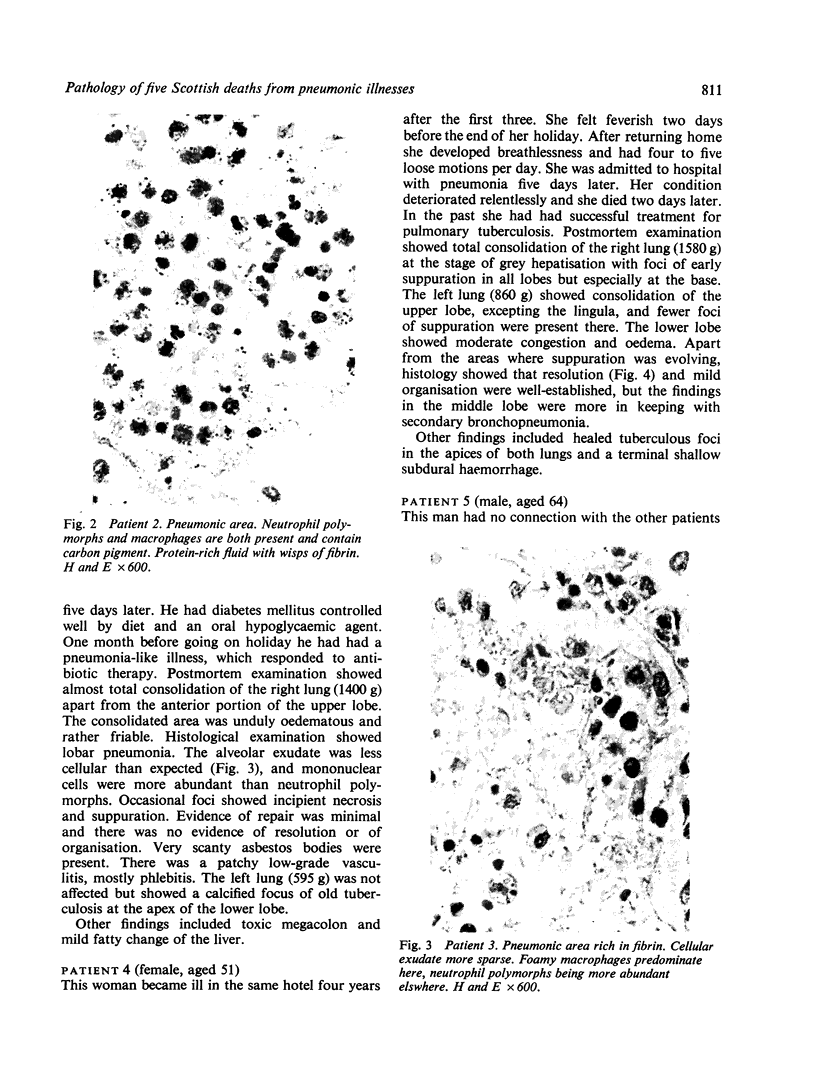
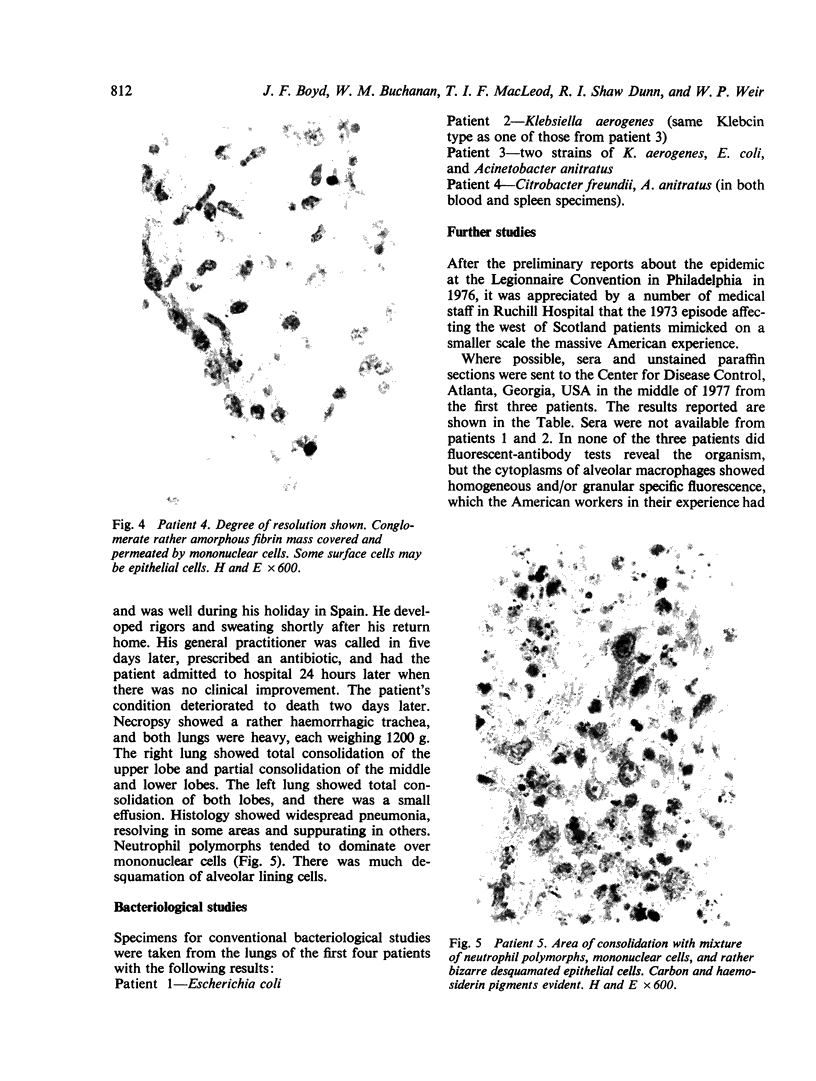
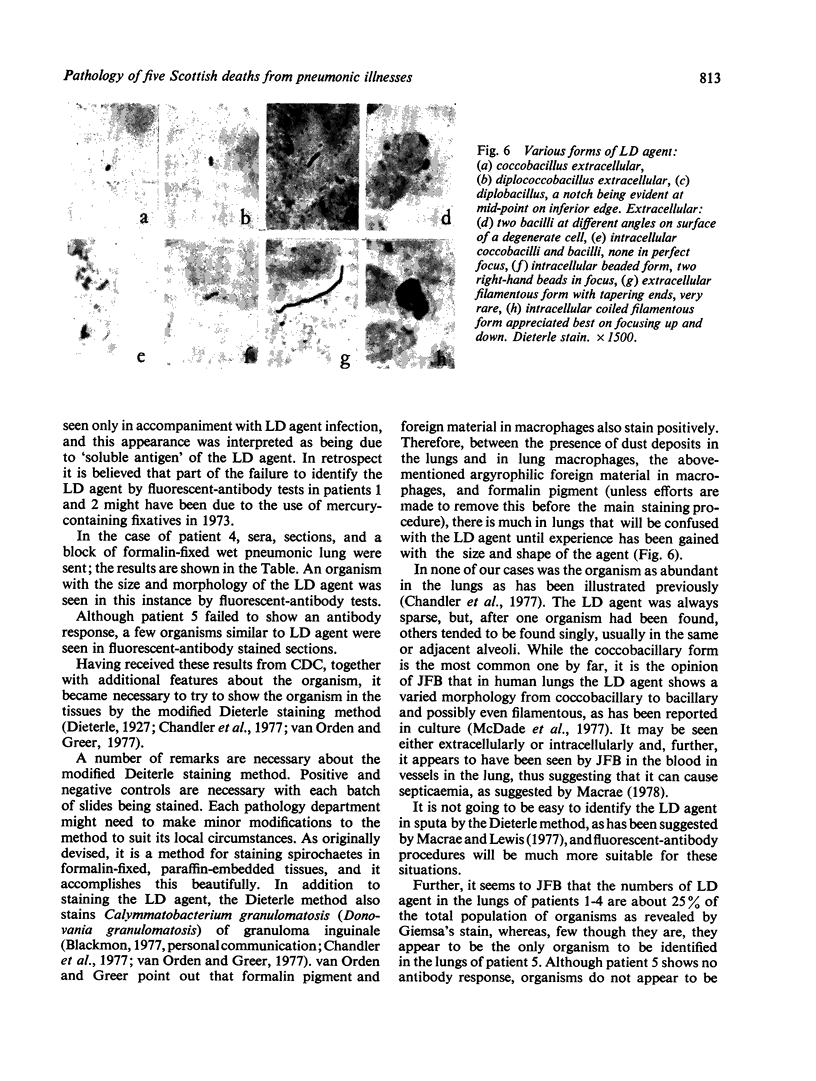
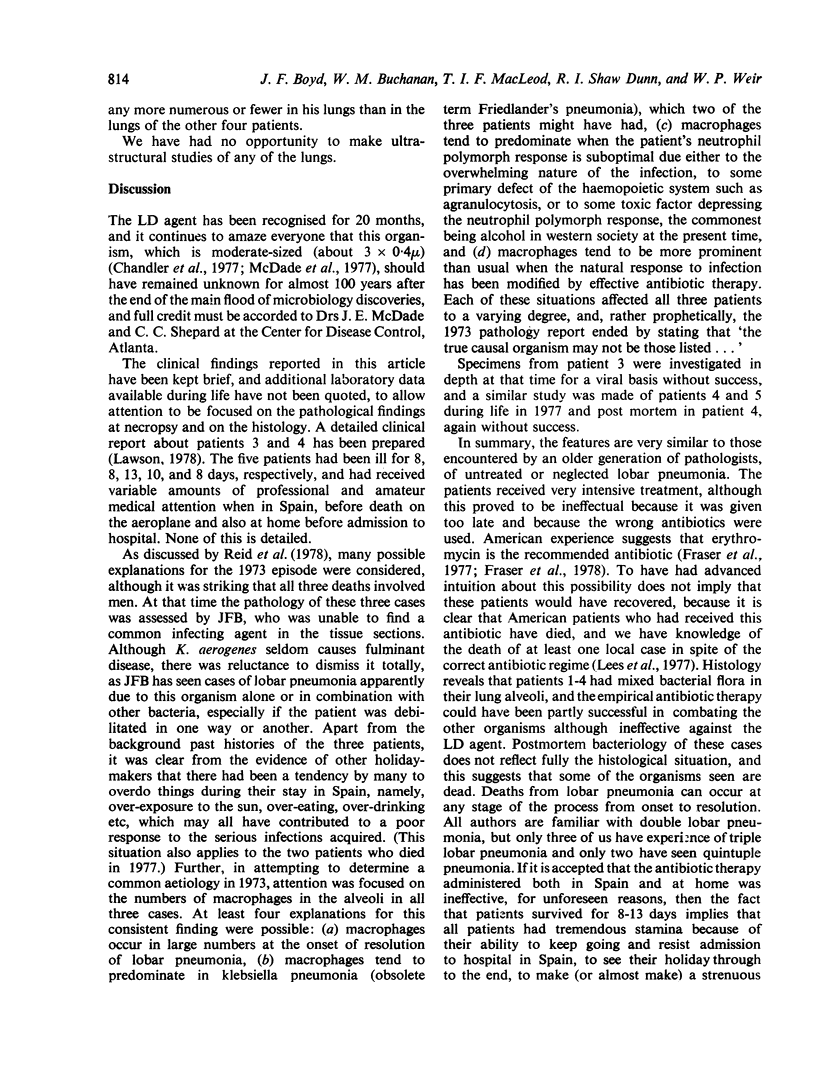
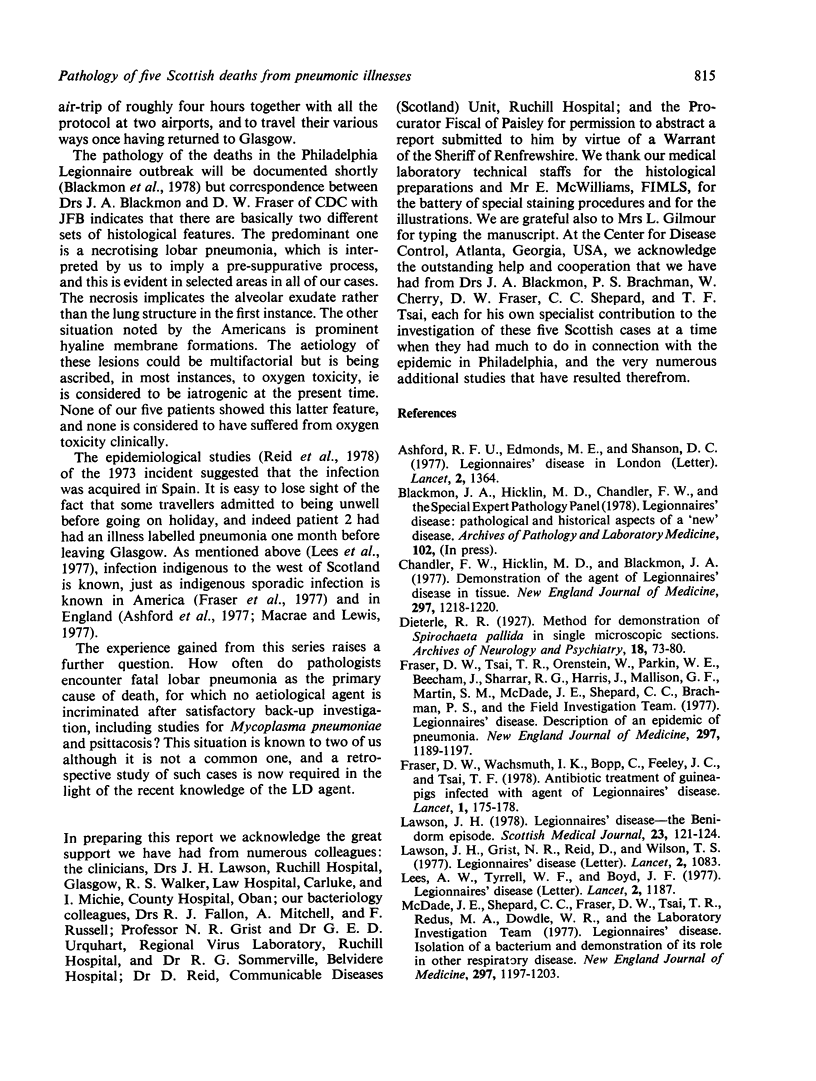
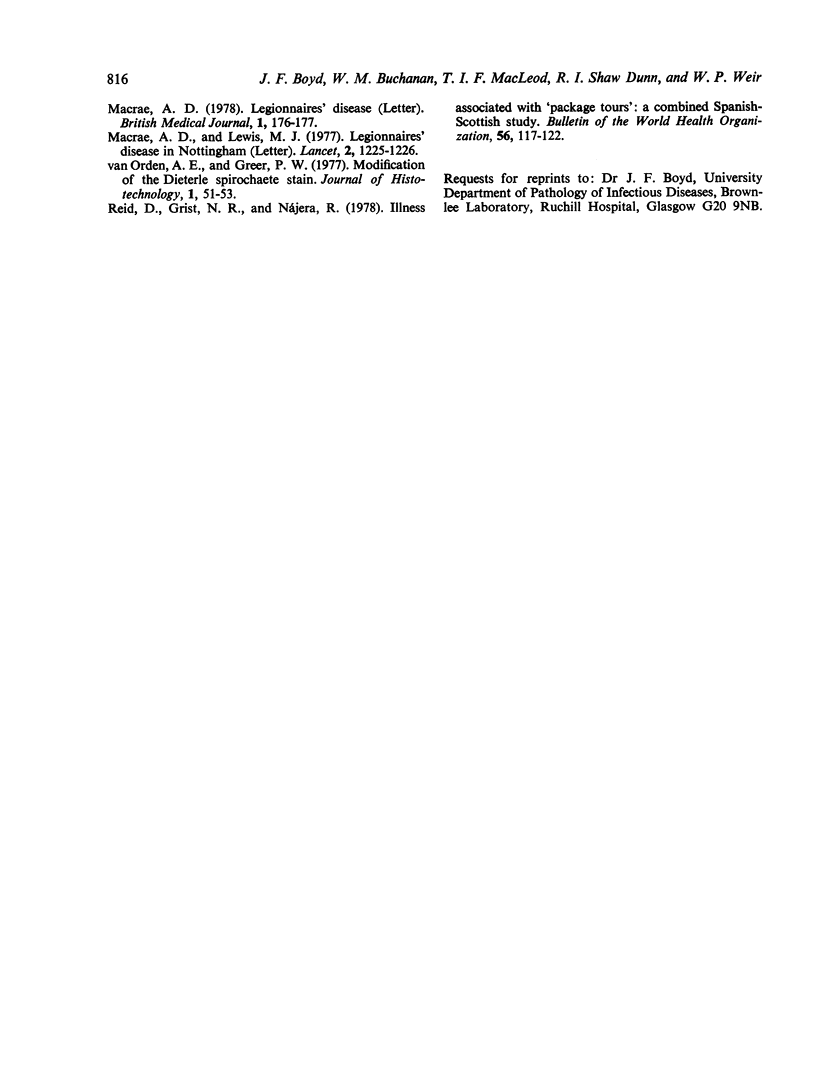
Images in this article
Selected References
These references are in PubMed. This may not be the complete list of references from this article.
- Ashford R. F., Edmonds M. E., Shanson D. C. Legionnaires' disease in London. Lancet. 1977 Dec 24;2(8052-8053):1364–1364. doi: 10.1016/s0140-6736(77)90421-4. [DOI] [PubMed] [Google Scholar]
- Chandler F. W., Hicklin M. D., Blackmon J. A. Demonstration of the agent of Legionnaires' disease in tissue. N Engl J Med. 1977 Dec 1;297(22):1218–1220. doi: 10.1056/NEJM197712012972206. [DOI] [PubMed] [Google Scholar]
- Fraser D. W., Tsai T. R., Orenstein W., Parkin W. E., Beecham H. J., Sharrar R. G., Harris J., Mallison G. F., Martin S. M., McDade J. E. Legionnaires' disease: description of an epidemic of pneumonia. N Engl J Med. 1977 Dec 1;297(22):1189–1197. doi: 10.1056/NEJM197712012972201. [DOI] [PubMed] [Google Scholar]
- Fraser D. W., Wachsmuth I., Bopp C., Feeley J. C., Tsai T. F. Antibiotic treatment of guinea-pigs infected with agent of Legionnaires' disease. Lancet. 1978 Jan 28;1(8057):175–178. doi: 10.1016/s0140-6736(78)90611-6. [DOI] [PubMed] [Google Scholar]
- Lawson J. H., Grist N. R., Reid D., Wilson T. S. Legionnaires' disease. Lancet. 1977 Nov 19;2(8047):1083–1083. doi: 10.1016/s0140-6736(77)91924-9. [DOI] [PubMed] [Google Scholar]
- Lawson J. H. Legionnaires' Disease--the Benidorm episode. Scott Med J. 1978 Apr;23(2):121–124. doi: 10.1177/003693307802300204. [DOI] [PubMed] [Google Scholar]
- Lees A. W., Tyrrell W. F., Boyd J. F. Legionnaire's disease. Lancet. 1977 Dec 3;2(8049):1187–1187. doi: 10.1016/s0140-6736(77)91588-4. [DOI] [PubMed] [Google Scholar]
- Macrae A. D. Legionnaires' disease. Br Med J. 1978 Jan 21;1(6106):176–177. doi: 10.1136/bmj.1.6106.176-d. [DOI] [PMC free article] [PubMed] [Google Scholar]
- Macrae A. D., Lewis M. J. Legionnaires' disease in Nottingham. Lancet. 1977 Dec 10;2(8050):1225–1226. doi: 10.1016/s0140-6736(77)90459-7. [DOI] [PubMed] [Google Scholar]
- McDade J. E., Shepard C. C., Fraser D. W., Tsai T. R., Redus M. A., Dowdle W. R. Legionnaires' disease: isolation of a bacterium and demonstration of its role in other respiratory disease. N Engl J Med. 1977 Dec 1;297(22):1197–1203. doi: 10.1056/NEJM197712012972202. [DOI] [PubMed] [Google Scholar]
- Reid D., Grist N. R., Nájera R. Illness associated with "package tours": a combined Spanish-Scottish study. Bull World Health Organ. 1978;56(1):117–122. [PMC free article] [PubMed] [Google Scholar]



